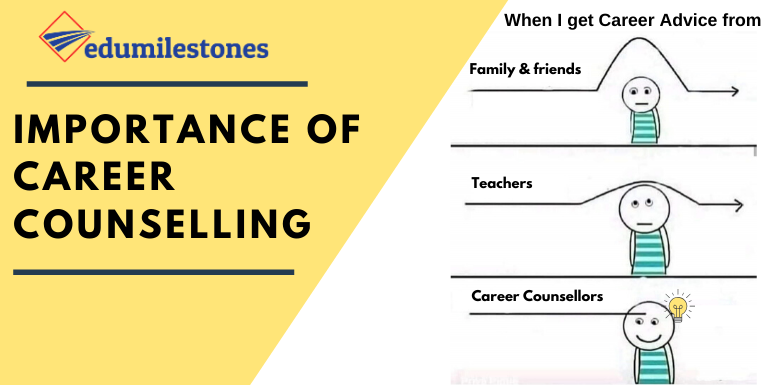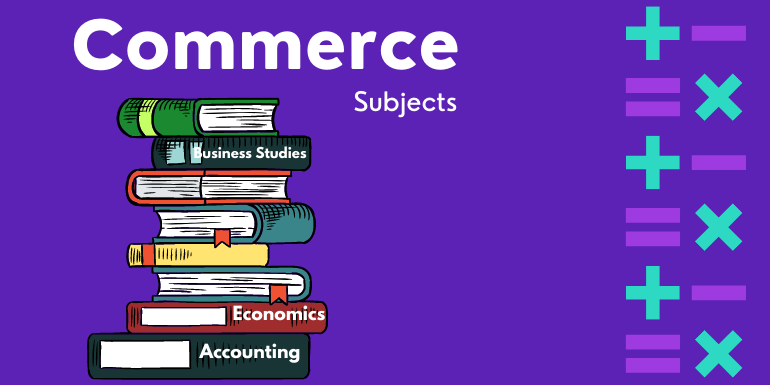School - as they say, happens to be the second home where a child spends the greater number of hours. It is the teachers who stand out to be Mentors. Ideally, a student should seek the assistance of a counsellor as early as in teens. It is when a child steps into adolescence that his world starts to spin faster. The tumultuous stage brings about physical as well as emotional upheaval that affects the career choices they make. He gets carried away by emotions remotely in touch with reality. Moreover, it is in these growing up years that career ideas start shaping up. Clash of ideas often makes way for unwanted anxiety. It is, therefore, the best time for the schools to reach out to them.
Why is career counselling important in schools?
-
Securing good grades: Round the year, students are fed with the notion of securing good grades to excel. A slight deviation from the convention leads to increased pressurisation on the child. But sadly schools have not been able to take any measure to demolish this misconception.
-
Lack of awareness of the evolving career fields: We have come a long way when the only career options available were being doctors, engineers or an MBA. With time, a lot of many options have evolved. But be it, parents, students or teachers are not much conversant with the new developments.
-
Lack of clarity of the idea of Career counselling to schools: Not just schools, but almost half the population is under the impression that career counselling is as similar to admission counselling. Hence parents, as well as schools, tend to avoid being involved with such set-up misjudging one for the other.
-
Lack of awareness of parents: Parents are mostly not aware of the new career options in the market. They need some assurance before they allow their child to be into something so new as opposed to the age-old high paying conventional choices.
-
Reality check: A youth gets drawn to the glitz and glamour of a profession featured in the popular shows. He gets carried away by the character he admires and decides to plan his footsteps accordingly straying from the trails of reality.
-
Less emphasis on the career in the race of marks: Good grades have these days, taken much precedence over the importance of getting industry-ready when it is the ultimate fate of almost of a huge percentage of the population.
-
Lack of encouragement in sports: A lot of youngsters often take to sports. Inability in identifying the athletically-gifted youths often leads to their future doomed under pressure.
-
Best in school but unfit for the industry: Toppers in school often find themselves out of place as they step into the world of exposure. They step into a domain which does not happen to be their comfort zone. Half the time, they lack professional skills. Hence they find it hard to adapt to the new setup and draw into a shell.
-
Lack of professional orientation in schools: The idea of exposing the school-goers to the glimpses of the professional environment has not occurred to the schools at large. In doing so, a child would get into the process of grooming himself and not hesitate when he steps into the corporate.
-
Following the herd due to peer pressure: The 10th and 12th standard students are often confused with the streams that would fit them. And there is a high possibility to pursue another career after a while. Ultimately, the chosen path renders dissatisfaction leading to compromising on job satisfaction in the later years.
-
Career counselling not being a part of the curriculum: Schools adhere stringently to the curriculum. The absence of a segment based exclusively on career values makes school overlook the importance of it.
-
Waste of time and money: To ensure a sound career foundation based on uninformed career choices, a lot of time and money is invested only to be offended by the unfortunate outcome of a student not being in a position to continue.
-
Psychometric test without a proper interpretation: Students restrict themselves to taking psychometric tests which reveals the strengths and weaknesses. They overlook the need for interpretation of the report which would add to the credibility and productivity manifold.
-
The dearth of trained school counsellors: The task of spreading awareness about the career moves in the society as a whole gets difficult due to the meagre presence of school as well as career counsellors. It becomes a difficult feat altogether to reach out to a huge section owing to the absence of an appreciable population of career and school counsellors.
By the virtue of being individuals, we do have preferences and the same needs to be applied to career choices too. A career counsellor unveils the not-so-popular choices which may interest a student. This practice ensures that students make informed career decisions at the right time.
Things that schools should encourage:
-
There should be a shift in the outlook of schools in terms of bringing in a radical change in the curriculum. By introducing a segment highlighting the importance of career would help students prepare themselves in the school days itself.
-
Merely memorising the bookish theories are hardly going to take children anywhere. Realistic approach of a job or a career holds much importance. Hence career counselling is important where optimised utilisation of technology to test of three factors – aptitude, interest and personality help determining the right choice.
-
It is the in-depth reality check along with a road map that a career counsellor provides which paves way for the next 5-10 years to run smoothly reducing chances of mid-career crisis greatly.
-
Some take psychometric tests which only highlights the strengths and weaknesses along with his aptitude and interest. A proper interpretation of the report explaining the pros and cons of both his interests and aptitudes would put him in a position to me right career decisions independently.
-
In the later stages, students are able to discover their potentials and interests and this is when the pressure starts building. A career counsellor also provides essential support and boosts the morale of a student by understanding the kind of requirements. This would improve the overall performance of a student by devising a proper roadmap to proceed.
-
Career counselling also ensures that you are taught how to expand your network especially if you are reserved and shy or you are not too sure to approach.
-
Extra-curricular activities need to be taken into account so that a student might grab this opportunity from school to groom himself. Once the school becomes the launch pad and takes note of sports as a career option, parents would not be burdened much.
Things that schools should not do:
-
Schools should not undermine the importance of having a career guidance cell and perpetually emphasize on securing good grades.
-
The capability of a student to excel in fields other than academics should not be overlooked.
-
Quality of the school/career counsellors should not be compromised with.
-
Innate talents and skills of a student should not be done away with.
-
Career counselling should no longer be treated as a part not included in the curriculum.
-
Schools should not consider career counselling as a medium of admission counselling.
-
It should of prime importance to school to prevent parents as well as students from taking uninformed expensive career decisions.
The role that school should effectively play behind early shaping up of career
Schools have so far been playing the role of the stern academician. But with the emerging competitive scenario, plenty of opportunities have cropped up. The youngsters, fresh out of school are not skilled or groomed enough to accommodate themselves in the professional setup. So schools should take the initiative of shaping the careers of the young minds from the early stages. With the proper arrangement in place, schools are now looking forward to bring in career counselling as a part of the curriculum. It is through such a program that a student conceives an ultra clear vision of his career path based on his interest and skills. So by the time they come out of schools, they would have outstanding academic achievements coupled with a career path well chalked out. Most importantly, they have mastered the skill to prove themselves inevitable to the industry.
Besides, schools have also thought of Career Labs, an initiative to evaluate a child’s interest with his capabilities to shine in the outside world. Edumilestones steps into the frame where it would shoulder the onus of devising career paths to the students based on their interests, values and skill set. Such an effort would open up as many as 150+ career paths, 3000+ occupations for the students. Through scientifically conducted online profiling, a student gets to explore innumerable career option based on his aptitude and interest. A detailed roadmap in place followed by a proper interpretation by a trained career counsellor would do away with the common cluelessness of the students.
People have begun to realize the fact that not all can become engineers or doctors or an MBA. This makes way for exploring other fields depending on talent and interest in diverse domains. The task of providing proper guidance is carried out efficiently by career counsellors. Having a career counselling cell in schools is the first step in doing that. Thankfully Edumilestones is striving hard to spread awareness through its dedicated team of trained career counsellors across India. It is a great first step indeed to bridge the gap between students and their satisfactorily employed selves.















